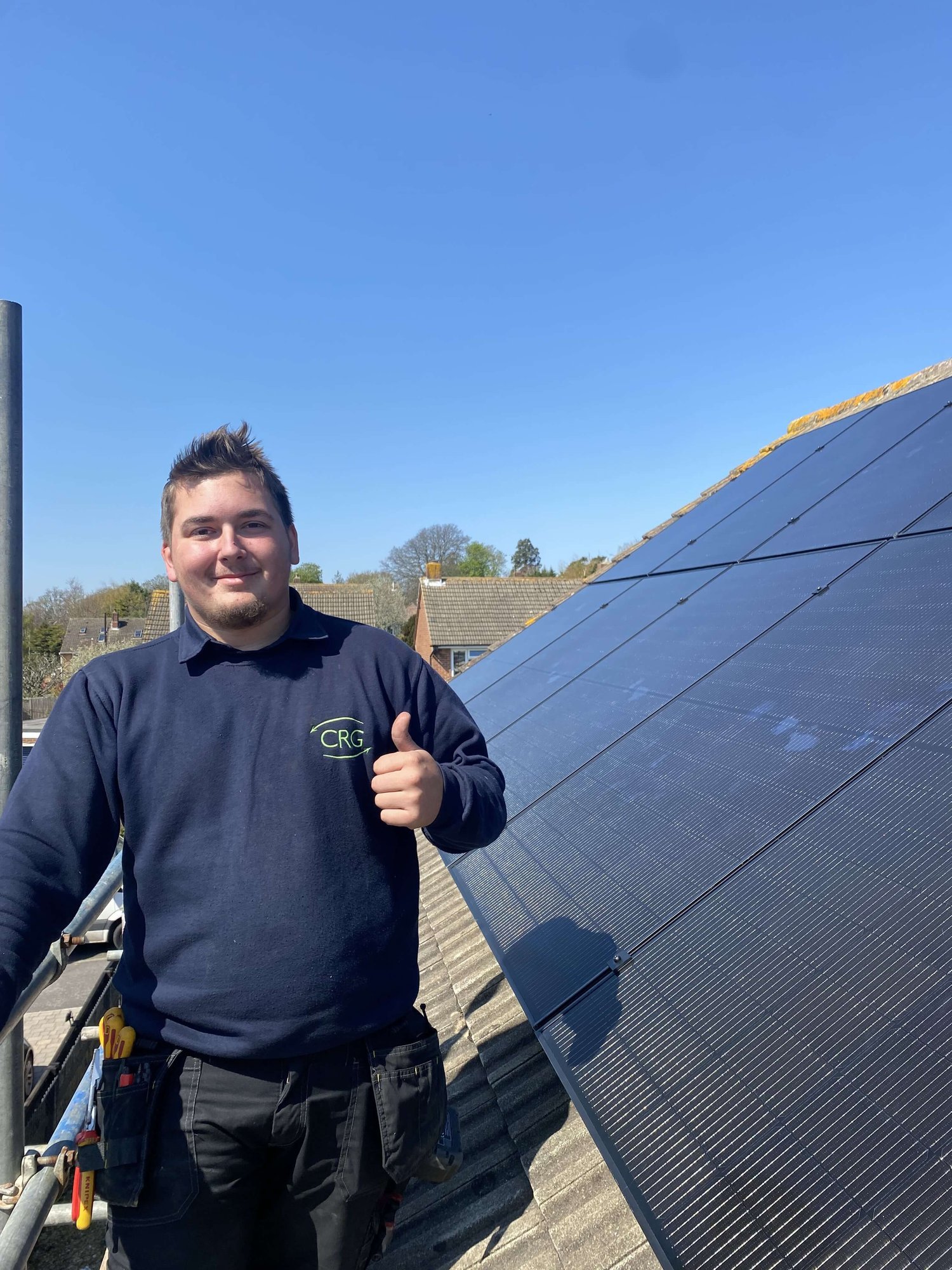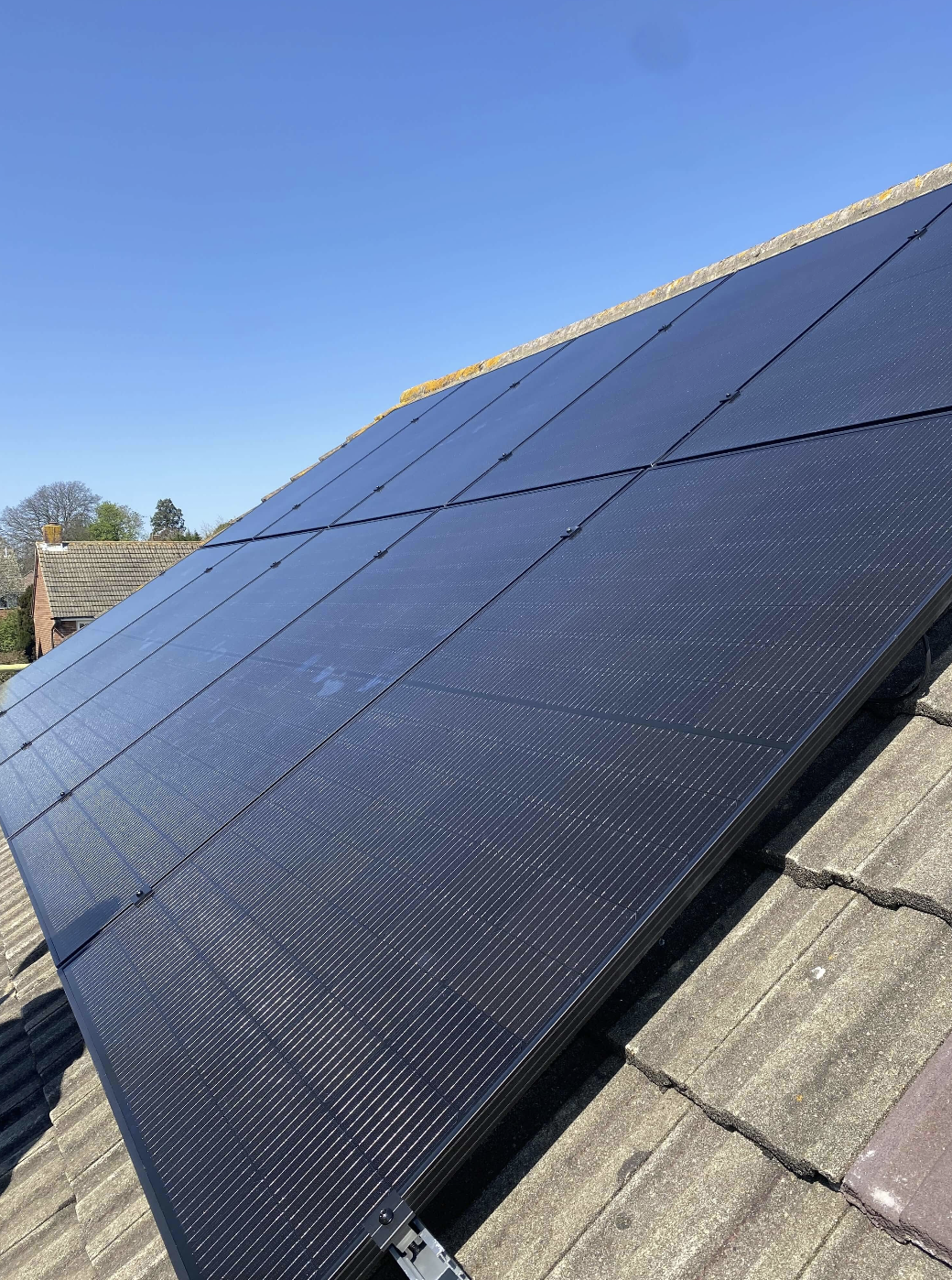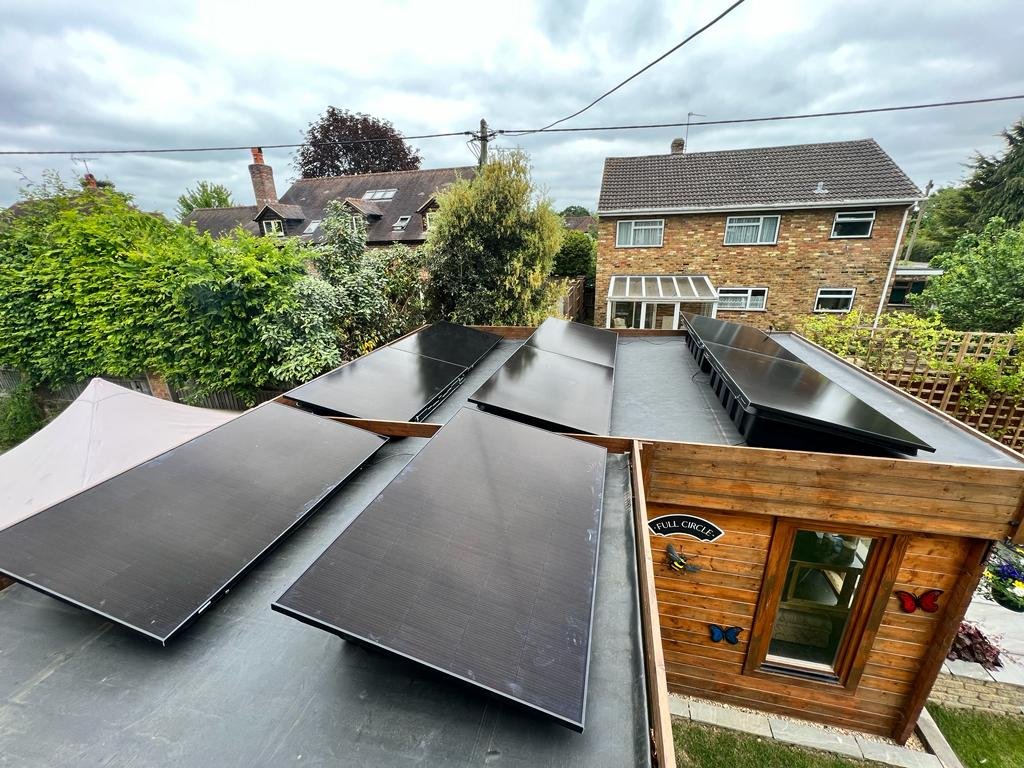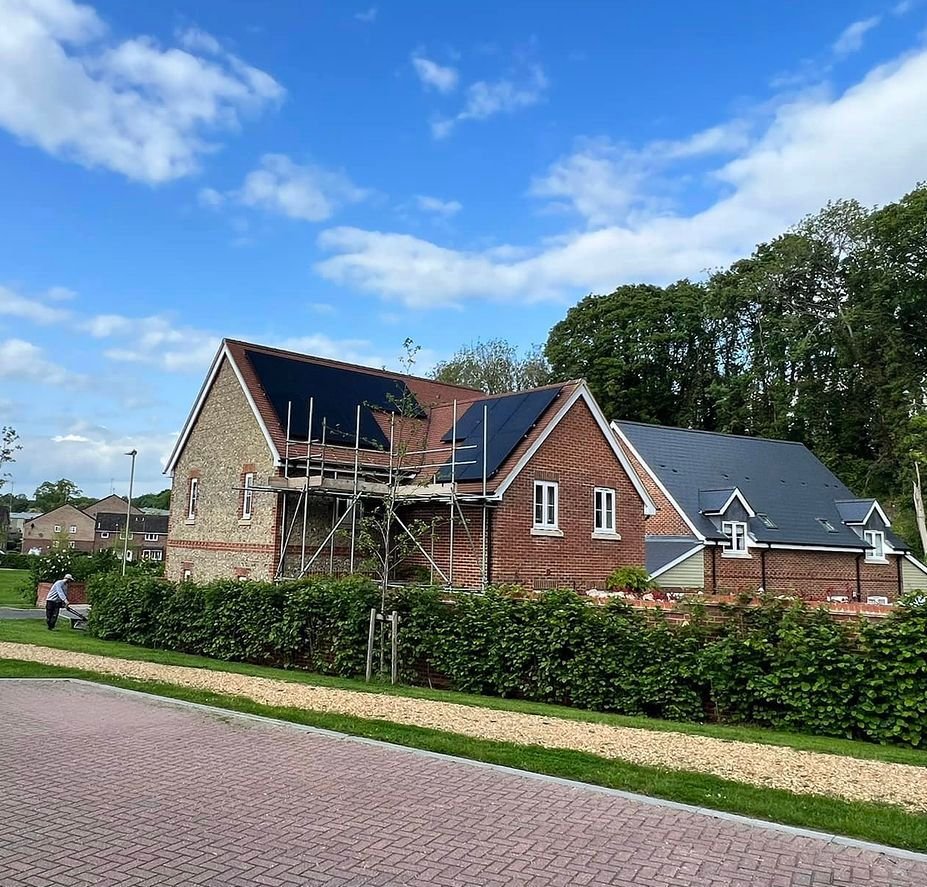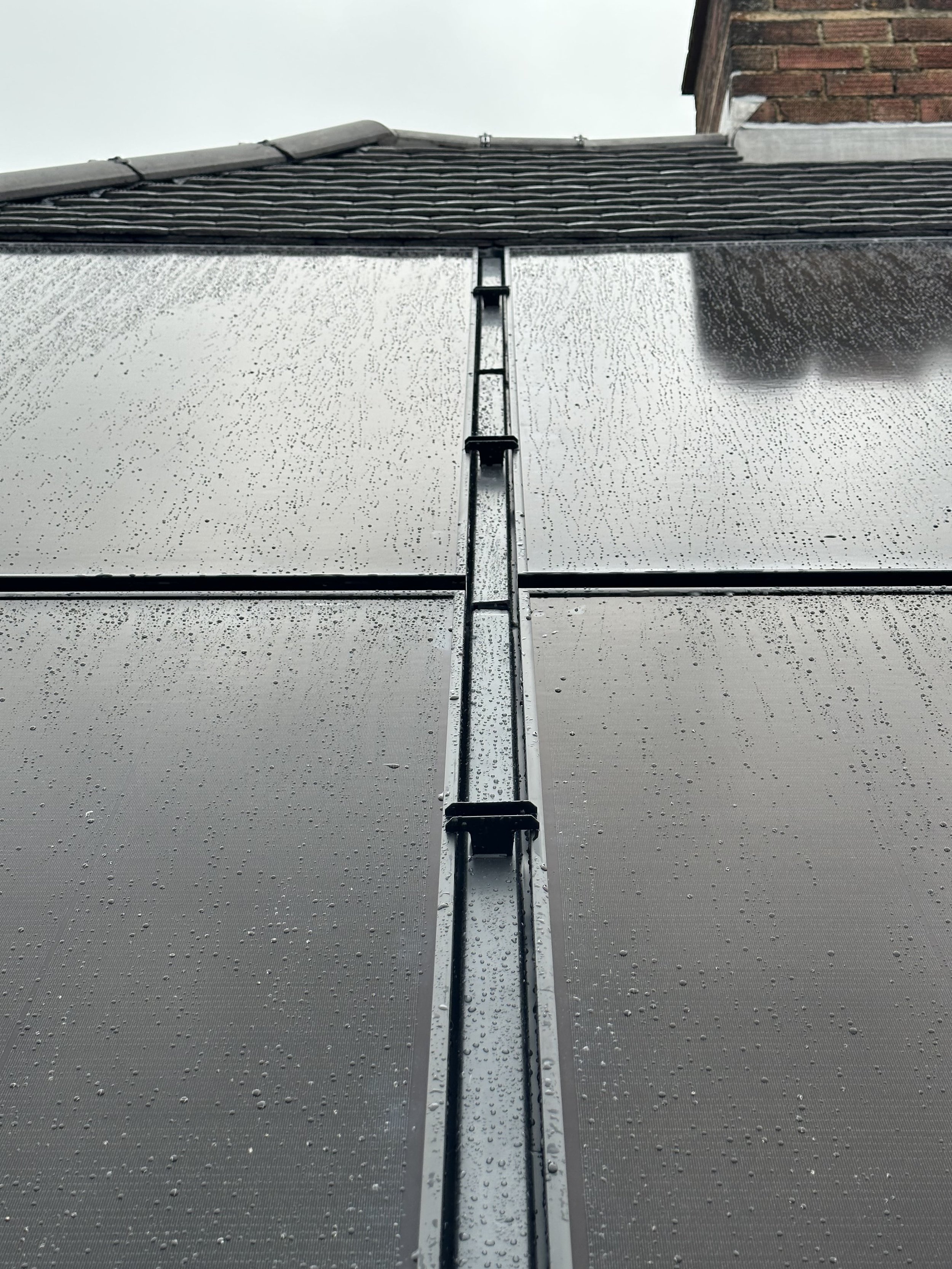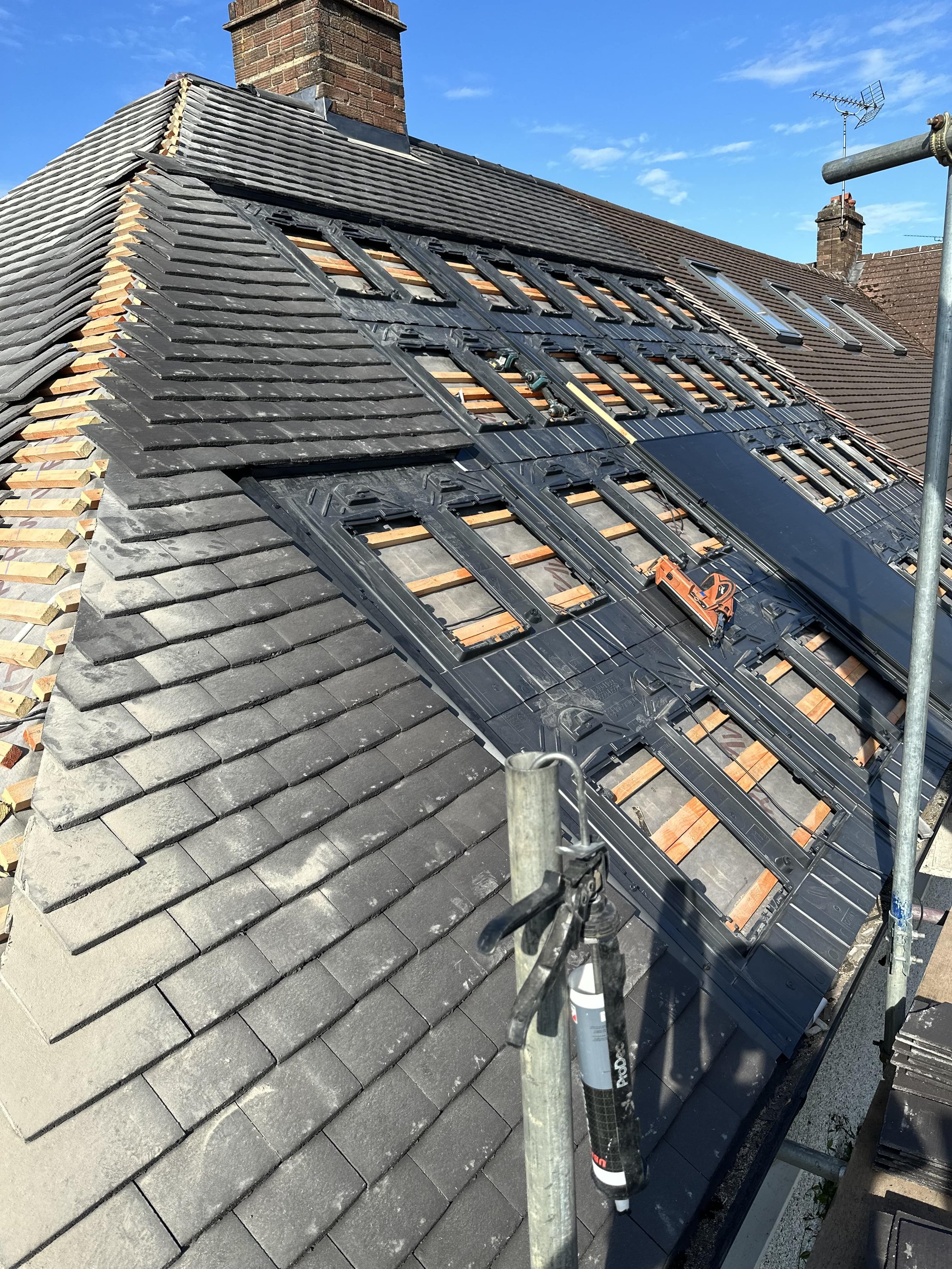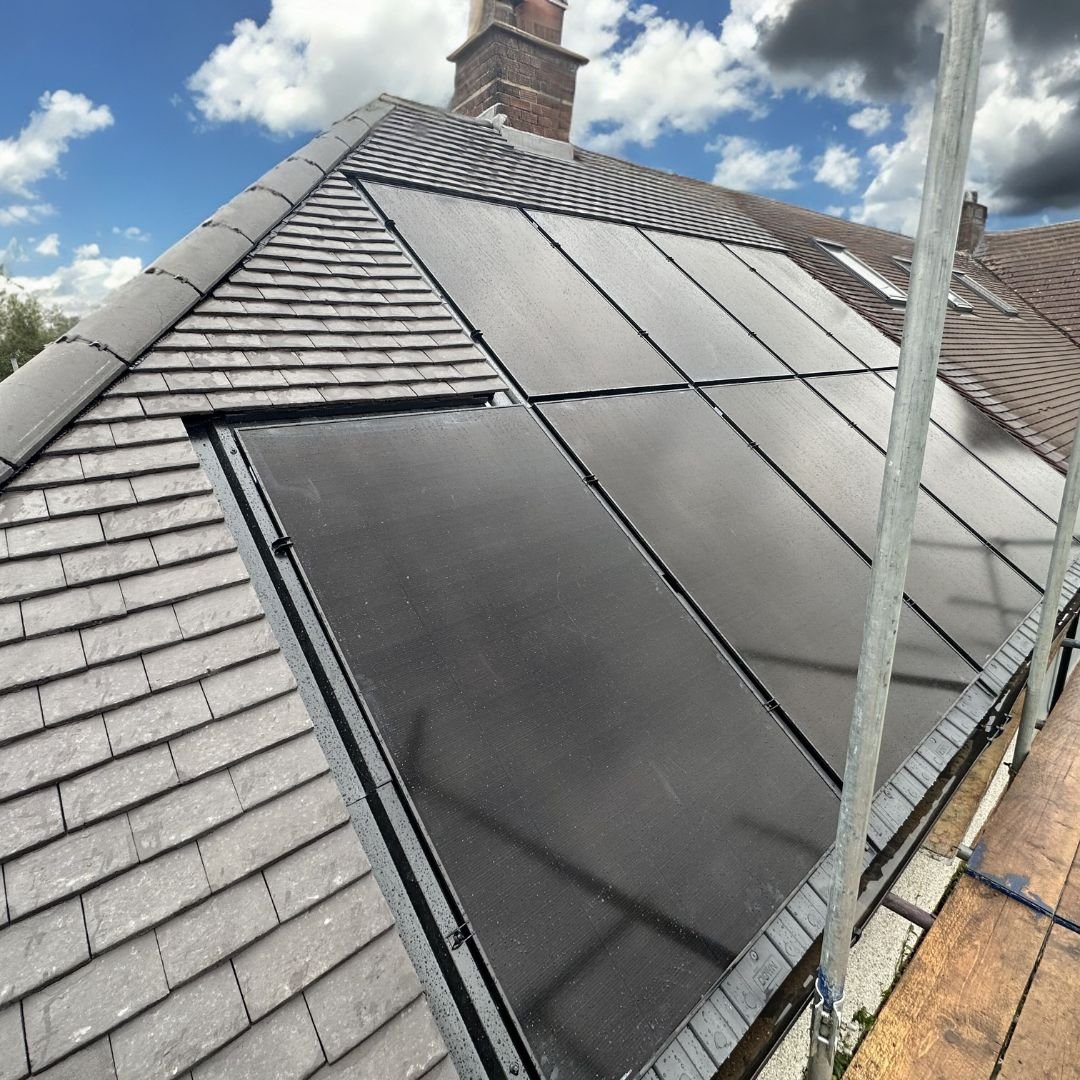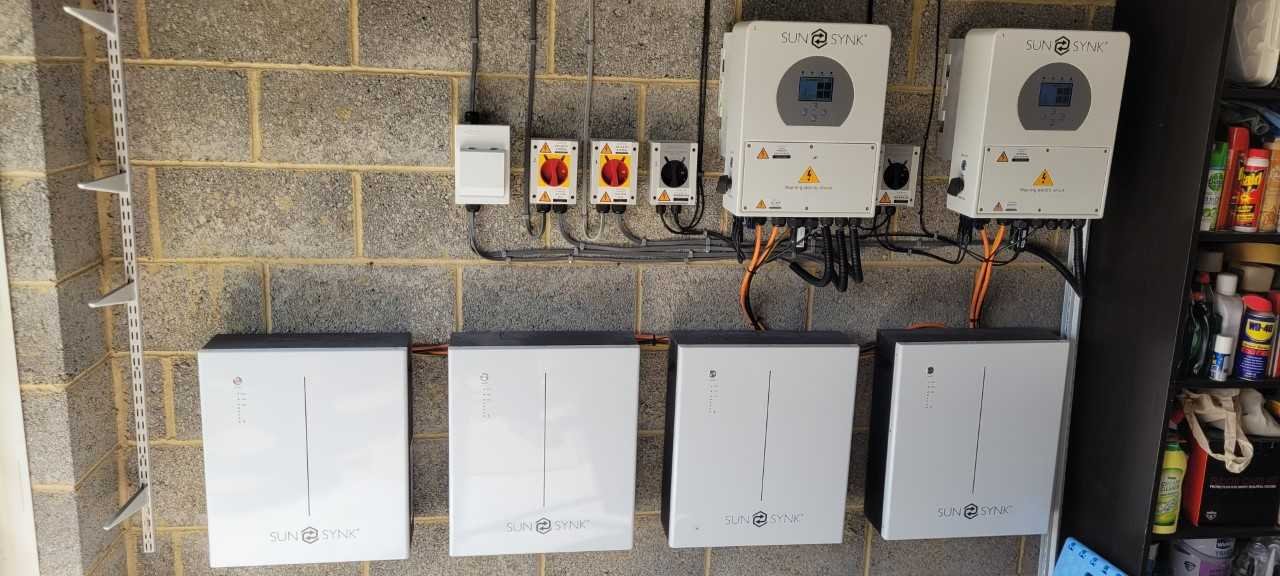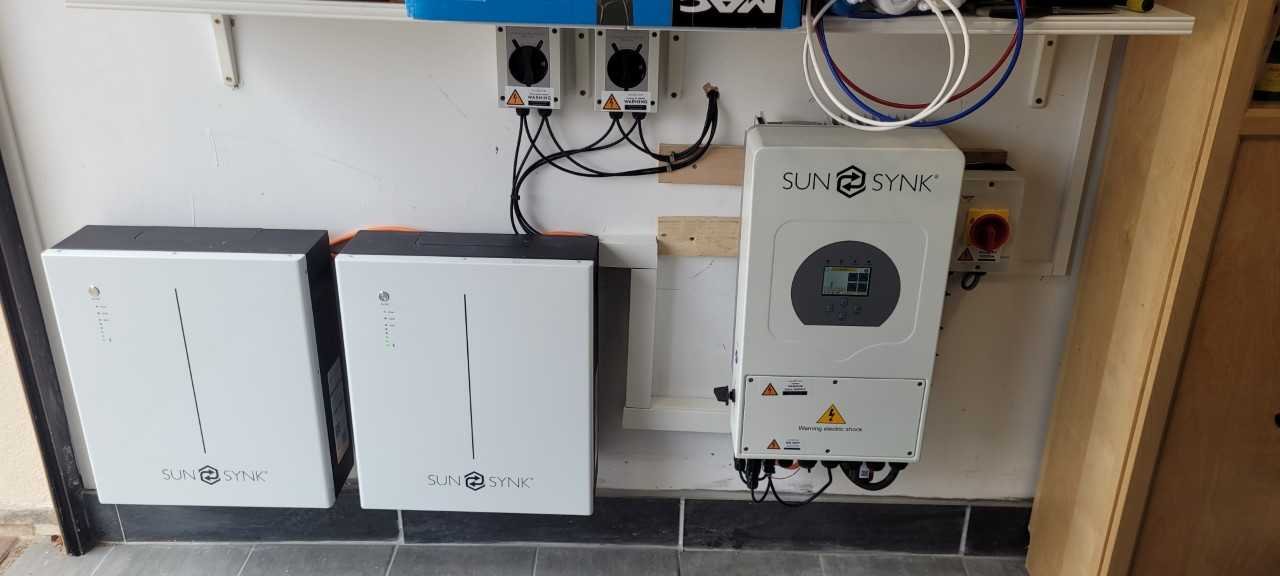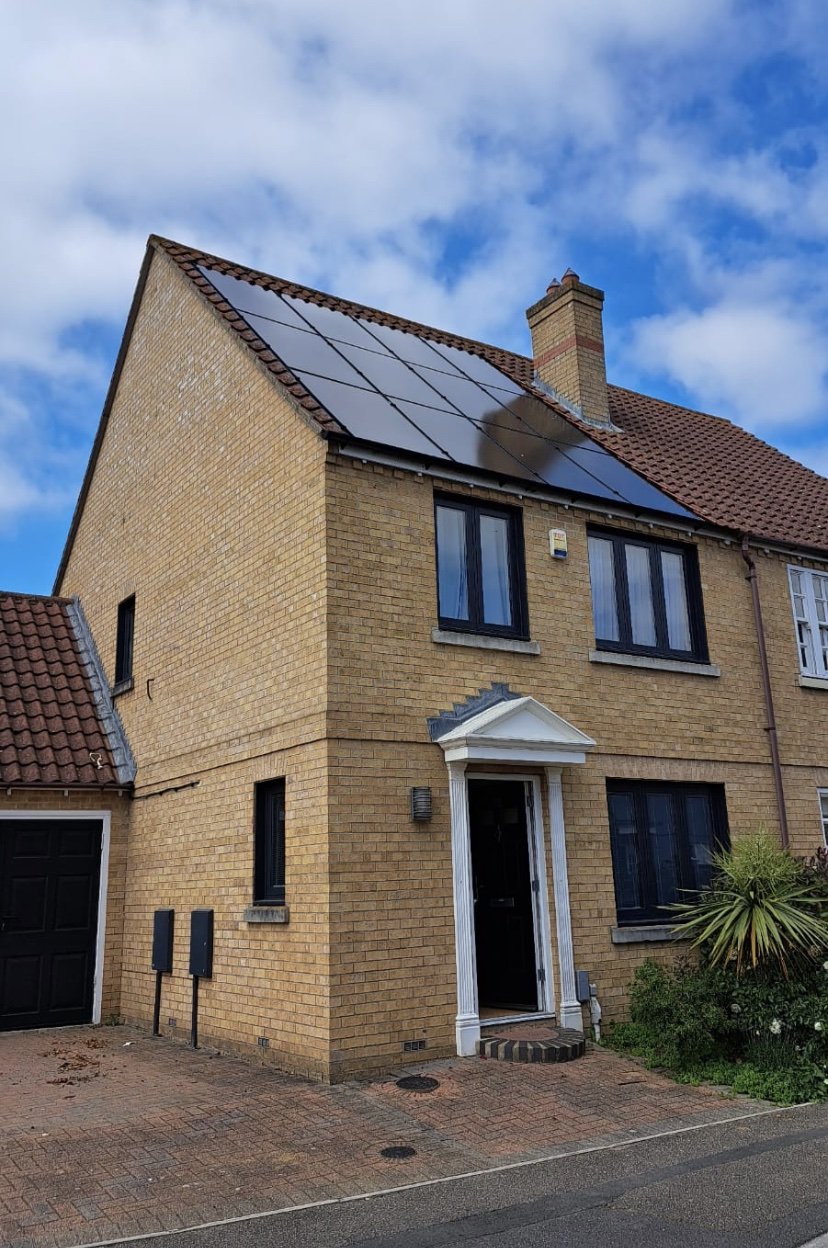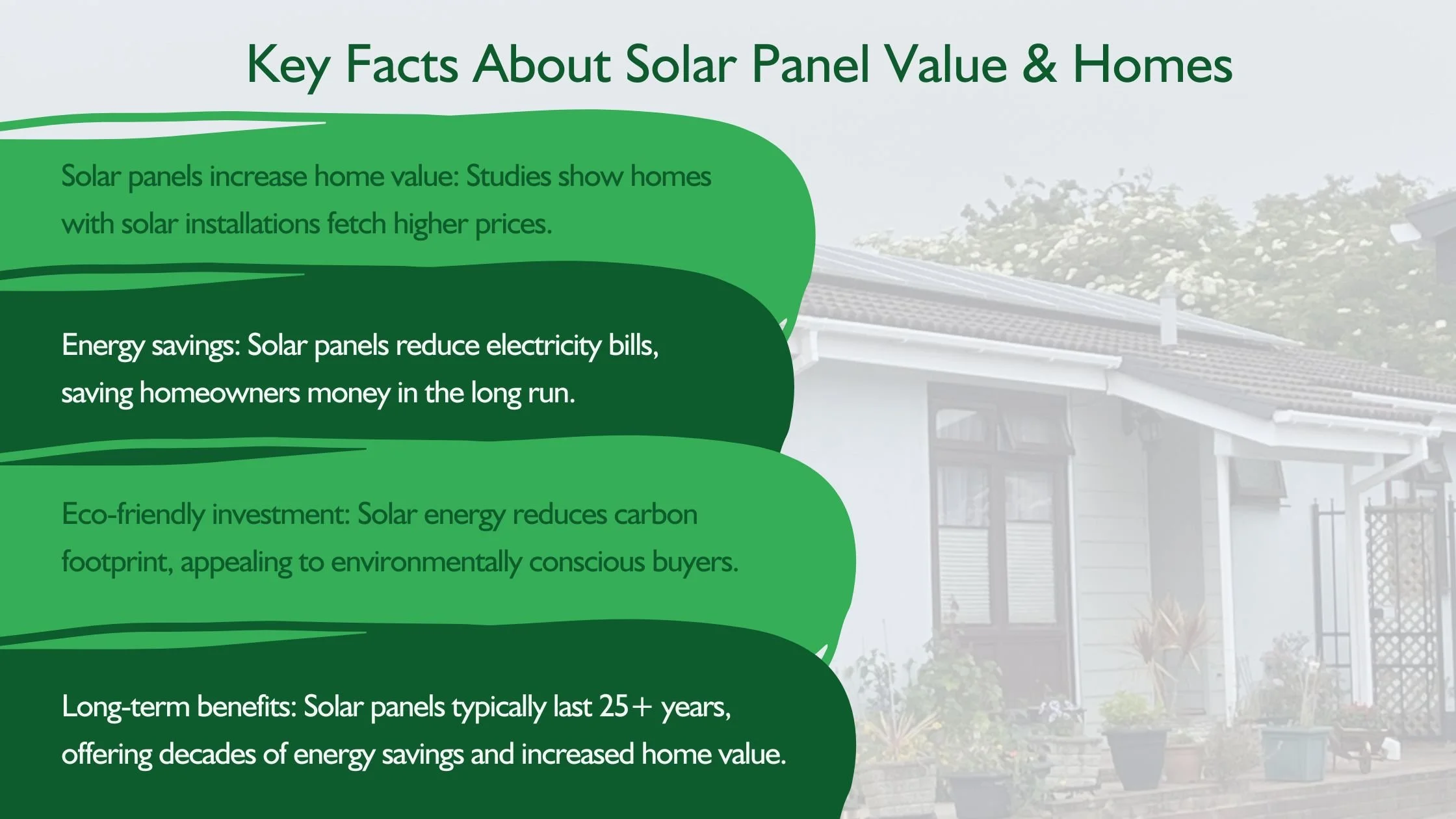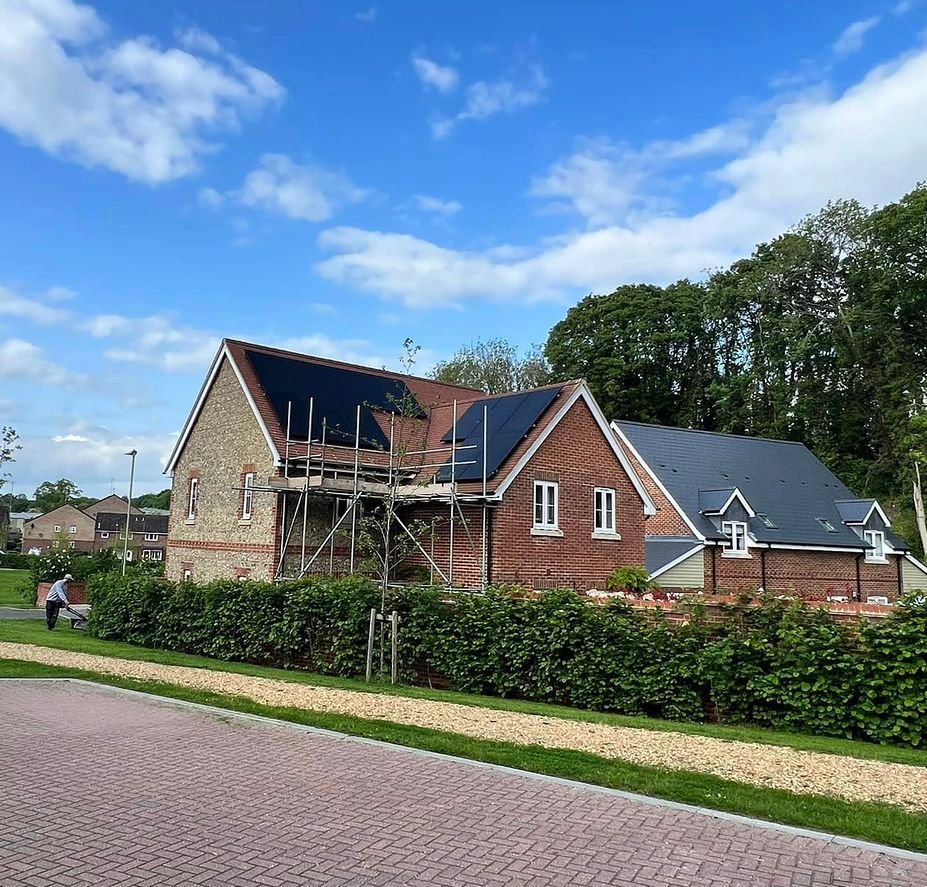Essential Facts About Solar Panels for Home
Key Considerations and Benefits
What’s on this page?
The Basics of How Solar Panels Work
Evaluating the Worth of Solar Panels for Your Home
Solar Panel Maintenance and Longevity
and more
Key Highlights
Solar panels can significantly reduce your electricity bills and carbon footprint.
They work efficiently in the UK, even on cloudy days, generating free, renewable energy.
South-facing roofs are ideal for maximum solar energy generation, while east or west-facing roofs can also work well.
It's crucial to choose MCS-certified installers and get multiple quotes for optimal results.
Consider combining solar panels with battery storage for using solar energy during peak hours or at night.
Introduction
As the UK moves to renewable energy sources, more homeowners are choosing solar panels. Solar panels capture sunlight and turn it into electricity. This is a clean way to power your home. This guide gives key facts about solar panels. It includes how they work, what to think about when installing them, their costs, and how to get the most out of them.
Understanding Solar Panels for UK Homes
Solar panels, or solar PV systems, capture sunlight and turn it into electricity for your home. This lets you power your appliances with clean energy. As a result, you save on electricity bills and lower your carbon footprint.
In the UK, a regular home solar panel system includes 6 to 12 panels, which can produce a lot of power. The efficiency and power generation of each panel depends on things like how much sunlight they get, the type of panels, and the design of the system.
Estimated Savings from Solar Panel Systems (25-Year Projection)
| System Size (kW) | Estimated Annual Savings (£) | Estimated 25-Year Savings (£) |
|---|---|---|
| 2 kW | £300 - £500 | £7,500 - £12,500 |
| 4 kW | £600 - £1,000 | £15,000 - £25,000 |
| 6 kW | £900 - £1,500 | £22,500 - £37,500 |
| 8 kW | £1,200 - £2,000 | £30,000 - £50,000 |
| 10 kW | £1,500 - £2,500 | £37,500 - £62,500 |
Financial Considerations for Solar Panels
Investing in a solar panel system for your home needs careful thought about money. The first costs can be high, but it's important to think about the long-term savings. This includes lower electricity bills and possibly earning money from plans like the Smart Export Guarantee.
Looking into financing options, such as loans or payment plans from trusted solar panel installers, can help you handle the upfront costs. This makes getting solar energy easier for more people. Talking to a financial advisor can also give you great help and advice during this process.
Upfront Costs vs. Long-Term Savings
One big worry for homeowners thinking about solar panels is the money needed to buy and set up the solar panel system. But it is important to weigh this starting cost against the big financial benefits that solar panels can offer over time.
Solar panels provide free electricity. This means you can see a big drop in your monthly or quarterly electricity bill. How much you save will depend on how much energy you use, how big and efficient your solar panel system is, and the current electricity rates.
As time goes by, these savings help pay back the initial costs. Also, as energy prices keep going up, the long-term savings from solar panels look even better. This makes solar panels a smart and valuable investment.
Use our calculator to get an instant estimate now.
Available Grants and Subsidies for Solar Panel Installation in the UK
The UK government and other groups want to support renewable energy. They offer grants and subsidies to help people install solar panels. These funds make solar energy cheaper and easier for homeowners. This helps us move towards a greener future.
One important program is the Energy Company Obligation (ECO) scheme. This scheme helps pay for energy-saving measures like solar panel installation in England and Wales. It is especially for low-income families or those living in certain areas.
It is important to stay updated on the latest grants and subsidies if you want to install solar panels. You should check the UK government's website or contact your local council. They can give you useful information about current financial help and who can apply.
Technical Aspects of Solar Panels for Homes
Navigating the details of solar panels can feel difficult. However, knowing the basics like the best spot and angle for placement is important to get the most out of them.
Also, understanding how efficient solar panels are and how changes in seasons impact energy production will help you have clear expectations about how well they will work all year.
Optimal Placement and Orientation for Maximum Efficiency
To get the most out of your solar panels, how you place and angle them is very important. You should ideally put solar panels on a roof that faces south. They should have little shading from trees or nearby buildings. This way, they get more direct sunlight during the day, which means they can make more energy.
South-facing roofs work the best, but roofs that face east or west can still work too. They just might create a little less energy. North-facing roofs are not a good choice because they don’t get enough sunlight.
If your home has a flat roof, you can install solar panels at a slanted angle using special frames. This helps them absorb more sunlight. It's a good idea to talk to a qualified solar panel installer. They can help you find the best way to place and angle your panels based on your specific roof and location. This will help your solar panels work well.
Understanding Solar Panel Efficiency and Seasonal Variations
Solar panel efficiency is the amount of sunlight turned into usable electricity. Today’s solar panels typically have efficiency ratings between 15% and 20%. This means they can change a lot of sunlight into electricity.
The amount of electricity solar panels make can change with the seasons. In summer, longer days and strong sunlight help produce more energy. In winter, shorter days and weaker sunlight lead to less energy.
Even though solar panels make less energy in winter, new technology like battery storage helps homeowners save extra energy from sunny times to use later. This helps deal with seasonal changes so we can have steady access to renewable energy.
The Installation Process Explained
The solar panel installation process includes several important steps. First, you need to choose a good installer and get the right permissions. Before moving forward, check that your roof is in good shape for the installation.
It is very important to pick an experienced and certified solar panel installer. This installer will handle everything from start to finish. They will design the system, get the necessary permits, and make sure the installation is safe and meets all rules.
Steps to Take Before Installing Solar Panels
Before you set a date for your solar panel installation, it’s important to take a few key steps. First, reach out to your local council. Check if you need planning permission. Most homes with solar panels don’t require this, but there can be rules if you live in a conservation area or if your home is a listed building.
Next, look at how energy-efficient your property is. By making energy-saving changes now, like adding insulation or using better appliances, you can make your solar panel system work better. This may even let you reduce the system size you need, which can save you money.
Finally, pick a skilled and certified solar panel installer. Choose one that has MCS accreditation, which shows they meet industry standards. It's a good idea to get quotes from several installers. This way, you can compare prices, specifications of the solar panel system, and warranties. This will help you make the right choice.
Choosing the Right Solar Panel Supplier and Installer
Choosing the right solar panel supplier and installer is very important for a good solar energy experience. A reliable supplier offers quality panels with solid warranties. A skilled installer makes sure everything is designed and set up correctly for long-lasting results.
When looking for suppliers and installers, start by checking their credentials. Make sure they are registered with the Financial Conduct Authority (FCA) and have a valid company number. This gives you confidence in their legitimacy. Look for certifications like MCS accreditation, which shows they follow industry standards.
Reading reviews online can give you helpful information about the supplier's and installer's reputation, service, and work quality. Ask for references and get in touch with past clients to hear their feedback. This helps you ensure their experiences match what you are looking for.
Solar Panel Maintenance and Longevity
One of the biggest benefits of solar panels is that they need very little maintenance. Still, knowing some easy maintenance tips can help you get the most energy and make your solar panel system last longer.
It's also good to know how long different parts of your solar panel system should last and what the warranty covers. This way, you will have a clear idea of how long they will last and what any replacement costs could be.
Routine Maintenance Tips for Home Solar Panels
Maintaining your solar panel system is easy and requires little work to keep it running well for a long time. The main tasks for upkeep include keeping the panels clean and clear of debris. This helps sunlight reach the panels and boosts energy production.
While rain can often clean the panels, you may need to rinse them with water and a soft brush sometimes. This is especially true in dry months or in places with a lot of dust or pollen. It’s also a good idea to check the panels regularly for any damage, such as cracks or loose wires every few months.
Most solar panel systems come with solid warranties that cover both the panels and the inverter. Knowing the warranty details, like how long it lasts and how to make claims, can help you feel secure. This way, your investment is protected from unexpected problems.
You may need to replace the solar inverter, as panels last twice as long as inverters.
Expected Lifespan and Warranty of Solar Panels
Modern solar panel systems last a long time and are very dependable. With proper care, they can last over 25 years. This makes them a smart choice because they provide many years of clean, renewable energy and help save money.
Good manufacturers offer strong warranties for their solar panels. These warranties last between 20 to 25 years and cover issues like defects, performance problems, or early failures. This means you can feel secure about your investment and know you are covered for unexpected matters.
It's also important to know that although solar panels last long, some parts, like the inverter, may need to be replaced after 10 to 15 years. By understanding how long each part lasts and what the warranty covers, you can budget more accurately and prepare for any future maintenance or replacement costs.
Maximizing the Benefits of Your Solar Panel System
Solar panels have many benefits. Adding other technologies can make them even better and improve the sustainability of your home. When you use solar battery storage, you can save extra energy made during the day. You can use this energy at night or when the power goes out.
Also, using solar energy to run electric vehicles and home appliances can lower your need for grid electricity. This can help you save money and support a greener, more sustainable lifestyle.
Incorporating Solar Battery Storage Solutions
Solar batteries change the way we use home solar power. They let you save extra energy from your solar panels during the day. Later, you can use this energy when the sun goes down. This smart technology helps you use more solar energy and lowers your need for power from the grid. It also boosts how well your solar panel system works.
With battery storage, you can run your home on free solar energy, even when electricity prices are high. By using battery power instead of getting energy from the grid, you can cut your electricity bills. Over time, this might even help cover the cost of the battery installation.
Also, solar batteries give you backup power during outages. If there is a power failure, your home will still have energy from the solar battery. This means you can keep using important appliances and devices without interruption.
Utilizing Solar Energy for Electric Vehicles and Home Appliances
Using solar energy to charge your electric vehicle (EV) is a smart choice. It helps you save money and lowers your carbon footprint. When you charge your EV with clean energy from solar panels, you depend less on fossil fuels. This means you spend less on fuel and produce fewer harmful emissions.
You can also save more energy by using solar power for your home appliances. Try to run power-hungry appliances, like washing machines or dishwashers, during the day. This is when your solar panels make the most energy.
Investing in energy-efficient appliances is another way to make the most of solar energy. These appliances use less energy. This lets you run more devices with the free electricity from your solar panels. This helps you get better returns on your investment and makes your home more sustainable.
Conclusion
Using solar panels for your home in the UK is a good choice. They provide clean energy and have great benefits in the long run. It's important to understand how they work, what they cost, and how they help the environment. By looking at the good and bad sides, checking for available grants, and placing them right, you can save money and lower your carbon footprint. Keeping them well-maintained and adding features like battery storage can help your system work better. You can use solar energy to run your home, as well as your electric vehicles and appliances. Switching to solar power helps create a greener future and can also raise your home’s value in the UK.
Frequently Asked Questions
How many solar panels do I need for my home?
The number of solar panels you need for your home depends on how much electricity you use each month. This is measured in kilowatt-hours (kWh). You also need to think about the size of the system you want and how powerful each panel is. To find out the right system size and how many panels you need, check your energy bills. Look at how much you use daily for your household appliances. You can also talk to a solar panel installer for their advice.
Can solar panels fully power a home in the UK?
Yes, a good solar panel system can power a home in the UK. The system size and how you use energy matter. Also, using battery storage for the night can affect if off-grid living is possible.
What happens to excess solar energy generated by my home?
Excess solar energy from your home can be sent back to the grid. You can do this through the Smart Export Guarantee (SEG). By doing this, you can receive payments from your energy supplier. These payments will depend on the tariff you agreed on.
Are there any hidden costs associated with solar panel installation?
While the costs of solar panel installation are often clear, there may be extra charges for things like scaffolding rental or roof repairs. Talking about possible extra costs with your installer ahead of time will help you fully understand the total expenses.
How does solar panel installation impact home value in the UK?
Installing solar panels can raise the value of homes in the UK. People want homes with solar panels more because they cost less to maintain. They also help the environment and support goals for renewable energy.
Contact us to arrange a free, no obligation quotation
from our friendly team. We'll get back to you within one working day.
Try our solar system cost calculator
Get an idea of what system might suit your home and what your approximate cost of a solar system would be.
What we can help you with
Our Quality Work & Products
